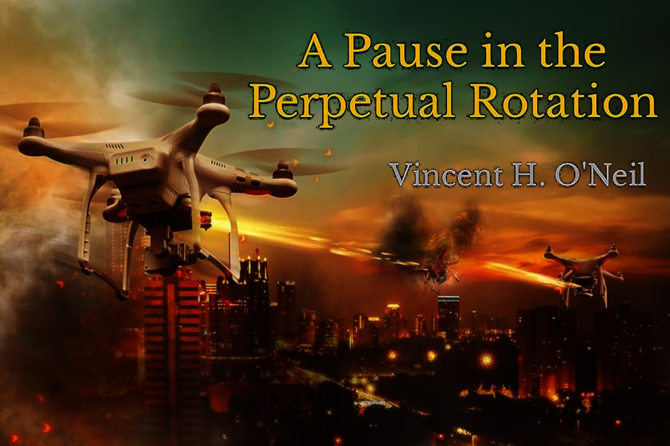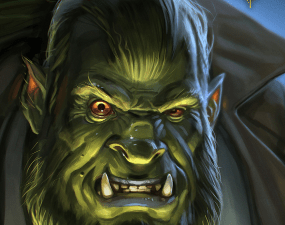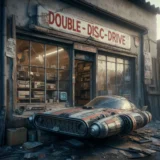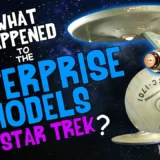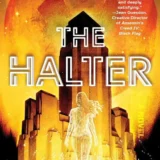The Afterlife Project is part survival story and part time travel epic. After a series of climate disasters devastate the Earth, a team of scientists (called “The Centauri Project”) decide to send a test subject ten thousand years into Earth’s future. This test subject is Nicholas Hindman, a microbiologist who find himself marooned in a lush, uninhabited wilderness. Fighting off loneliness and madness, Nick explores this strange-yet-familiar world for signs of human life.
Meanwhile, back in 2068, four surviving members of the Centauri Project embark on a perilous journey to find a second viable test subject. They learn of a small volcanic island in Sicily rumored to harbor something they thought no longer existed: a woman capable of getting pregnant. To get there, they must travel across the post-apocalyptic globe, risking powerful storms, cannibalistic communities of survivors, dangerous cults, and other dangers, but finding the right woman could mean the long-term survival of humanity.
Afterlife
Project
Excerpt of Chapter 16
By Tim Weed
March 29, 2068 (12 A.U.C.T.)
The Mediterranean Sea
Another uneventful day, not too hot, with a steady northwest wind that Tollie says is the Mistral. He thinks we’re somewhere around the longitude of Marseilles, though perhaps having learned his lesson he’s now keeping us far away from any visible shoreline. As promised, I’m going to use today’s entry to finish the Granada story. I should be clear that the events I’m going to narrate now were disturbing for all of us, but it is my firm intention to track the progress of this voyage as faithfully as possible. Consider yourself warned.
Thirsty and shaken after our hurried exit from Granada, we found a small spring by the side of the highway from which to refill our water bottles. From there we trekked up to the top of a high foothill with a view down into the city and left our packs under the roof of an old concrete bus stop. As the sun sank toward the horizon, we peered through our binoculars down into the interior courtyards of the Alhambra.
A crowd had gathered in the plaza outside the Renaissance palace at the heart of the ancient Moorish fortress. There were perhaps sixty or seventy people there, the same lean, rough-looking men and women in salvaged pre-collapse clothing we’d caught a glimpse of down in the city. They’d gathered in the square around a blazing bonfire of broken-up wooden furniture. But there was something else in the center of the square: a sort of low wooden bench with a figure kneeling in front of it. Three armed men in battered straw hats stood behind him.
“ Holy shit,” Tollie murmured. “I think that’s our friend from the convent.”
Adjusting the focus of my binoculars I saw that it was indeed the man who’d greeted us at the convent, and then tried so earnestly to lure us into a trap, though his face was now asymmetrically distorted, badly swollen and bruised from what looked to have been a severe beating.
Two of the men standing behind him pressed on his head and shoulders, forcing his chest down onto the bench. The third drew a long blade out of a scabbard at his belt—a machete like those once used to cut sugar cane or tall grass. Was it possible that he was about to—
No. It couldn’t be that.
But that was exactly what it was.
The guard with the machete stepped back to perform an oddly self-conscious flourish, twirling the blade and glaring meaningfully up into the mountains, as if he knew we might be watching through binoculars. Then he pivoted, slashing the blade down. Our erstwhile friend’s toothless head parted easily from his body, bouncing once on the flagstones and rolling a few yards before the blood even began to spurt from the severed neck.
Gasping, I tore the binoculars away from my eyes.
“ Fucking hell!” Tollie exclaimed. James was silent, still staring through his binoculars, but what I could see of his face had gone quite pale.
“ Holy crap,” Tollie said. “What now? Are they going to—are they getting ready to—?”
I forced the double lenses back to my eyes. Only for a moment; that’s all I could stand. But it was long enough to see what the Spaniard with the machete had begun to do, moving athletically, with the well-practiced skill of a butcher, while the other two erected a kind of iron spit or rack beside the fire. Most of the onlookers had cups or old plastic water bottles in their hands. Three women went around with plastic buckets, ladling some kind of home-brewed spirit into them, and the crowd conversed animatedly, as if this were a celebratory pig roast.
Only instead of a pig it was a man. With whom we’d exchanged friendly greetings earlier in the day. Whose toothless grin and obsequious vocalizations I still can’t get out of my head.
On the mercilessly sun-blasted journey back to the coast I was plagued every moment by the fear that our single-file trek over the mountains was being watched closely from a distance. We paused often to scan the terrain behind us, and though we saw no evidence of pursuit, a film loop of that horrific scene in the Alhambra courtyard kept playing and replaying in my mind. I couldn’t shake the feeling of dread, of pervasive danger and evil intent.
The former highway, fractured and deteriorated though it was, allowed us to make better time than we had on our way north, and we actually had a distant view of the Mediterranean after a single day of walking. It was such a relief to crest that ridgeline just before dusk, and to glimpse that expanse of empty midnight-blue ocean stretching out to the horizon. Empty except for the Solar Barque that is, which we assumed was still placidly hidden in the little cove at the foot of the ruined cliff hotel.
Unfortunately, however, this is not the end of the story.
At dawn the next morning we were getting ready to make our final push, warming ourselves by a small campfire, when something like a lightning-propelled hornet zipped in to strike Tollie’s right shoulder with a sickening plunk . He yelped, grabbing the shoulder with his other hand as the thunderclap of a rifle shot rolled down over the coastal foothills.
James screamed for us to take cover as he reached for Tollie’s Remington. I grabbed our cursing captain and led him to an outcropping, and we hunkered down as best we could while James—demonstrating a practiced ease in handling the rifle that took me by surprise—peered through its scope, trying to pinpoint the location of our attackers.
I helped Tollie out of his old denim shirt, which was ruined by a rapidly spreading stain of dark purple blood. He was white-faced and trembling, understandably in a state of shock. It turned out not to be a worrisome wound—certainly not as worrisome as it would have been if it had hit a few inches one way or the other. The bullet had entered just above the left collarbone, missing the clavicle itself and the subclavian artery and exiting cleanly on its own. It would need to be thoroughly sanitized back at the yacht, but for now I tore up the shirt and fashioned a tourniquet to stanch the bleeding. In truth we had more pressing worries, such as how to get down out of the foothills and across the cove to the yacht without being picked off by more long-range rifle shots.
We started moving down the mountainside, staying low and seeking cover as we descended among rocks and gullies and thickets of dry scrub, but it was a hair-raising time as we really had no idea where our attackers were located, other than behind and above us. Fortunately there were no more shots fired for the time being, and we dared to hope that they’d given up and gone back to Granada.
By midafternoon we’d made it into the old resort town and down through the ruins of the cliff hotel. Tollie had shaken off his initial shock enough to produce a nearly constant stream of curses; his shoulder was in a painfully swollen state, and his handsome unshaven face was pallid from pain and loss of blood. He was beginning to show signs of coming to the end of his endurance, and I worried that he might pass out, though for a man in his fifties under these circumstances, he’d shown remarkable staying power. James and I made him lie down on the beach while we uncovered the dinghy just where we’d left it, buried in plastic and sea wrack on the small beach below the hotel. We flipped it right side up and dragged it down to the waterline, then went back to help Tollie get in.
And it was in that moment that the hunting party showed themselves, lining up at the crumbling balcony atop the cliff. They were seven or eight in total—we were too busy to get an exact count—all men, dark-bearded, hollow-cheeked, ominously underfed. All had long blades hanging from their belts, and several had firearms. One had a long-range sniper’s rifle mounted with a large scope, which he worked to attach to a tripod at the edge of the cliff.
“ Get in, Al, get in!” James yelled. He was already in the prow with Tollie’s rifle; I pushed us off and jumped in, taking the oars.
The first shot was surprisingly loud in my ears, and it took me a moment to realize that it was James who’d fired it. Later he told me that he hadn’t been shooting to kill; he just wanted to give us more time to row. And he was successful. Glancing up I saw the others crowd around the sniper, who sat on the ground, grimacing and holding his arm.
“ As fast as you can row, Al!” James yelled, but I was already rowing as if our lives depended on it—which they unquestionably did.
A second Spaniard sprawled behind the rifle tripod and took several shots, but it seemed that he wasn’t quite as good at aiming as the one James had hit. Two bullets raised little spouts in the water ahead of us, and a third left a splintered fissure in the dinghy’s fiberglass hull, above the waterline. After that they decided not to waste any more precious ammunition for the moment, probably because they’d seen something new that we ourselves had not.
I nudged the nose of the dinghy up to the yacht. James clipped the bowline to the stern ladder, and we helped our gray-faced skipper aboard. I tended to his wound in the shade of the cockpit while James hauled in the anchor, and we readied ourselves to put up the sails.
It was only after this flurry of activity, with Tollie settled on an extra cushion on the stool with his good hand on the wheel, that I went belowdecks to check on Dr. Q. It struck me as odd that she hadn’t come up as soon as she’d heard us. I assumed that I would find her napping or absorbed with typical abandon in whatever it was she was reading or thinking about, but that was not the case. In fact, Dr. Q wasn’t aboard the Solar Barque at all. The kayak was missing, so apparently she’d gone off to explore the coast. Worse yet, Tollie’s pistol lay abandoned on a shelf beside her bunk. My body shook with panic.
After a hurried discussion, we decided to head east along the coast, on the logic that we’d come in from the west and she would have been more interested in exploring something new. Rather than take the time to put up the sails we opted to use some of our emergency fossil fuel supply. Tollie gave James instructions for starting up the old combustible motor; it wheezed a few times but came to life with a burst of loud coughing, and we were soon motoring noisily along the coast as close to shore as we dared.
We’d chosen the right direction. Soon we spotted the cherry-red slash of the kayak pulled up among the boulders beneath a half-ruined stone watchtower (built by the Romans or even the Phoenicians according to Tollie, still enthusiastic enough to play tour guide despite his weakened state). With our binoculars we located her right away, a tiny brown figure poking around in the rubble at the base of the tower, the big round lenses of her spectacles flashing unmistakably in the mid-afternoon sun. One of the greatest minds of her generation, so lost in reverie among the tumbled stones of ancient human history that she hadn’t heard the sound of distant gunfire or even the approaching putter of our emergency motor. It might have been an amusing prospect if it hadn’t been so worrisome. Because the hunters—well-armed and purposeful-looking—were hurrying along a hiking trail that ran parallel to the rocky coastline. They had almost reached her.
James and I jumped up and down on the foredeck, waving our arms and screaming to get her attention, but she was lost in thought, strolling with her hands clasped behind her back as she gazed down at those old rocks, pausing occasionally to pick up a pebble or wipe away some dust.
“ Ugh! Do we need to fire bullets to get her attention?” I asked in frustration, but James had gone below and came back up a moment later with the yacht’s signal horn. This made an extremely loud and stress-inducing noise, and Dr. Q jumped. She saw us, held out her arms in a questioning gesture, and finally started making her way down through the broken rocks to the kayak.
Meanwhile the hunters were rounding the last bend in the trail. I felt a dropping sensation in my stomach, because it looked like there was no way she could get the kayak down to the waterline in time. But in the next moment there was a loud explosion beside my ear and the lead Spaniard appeared to lose his balance. He teetered, then fell from the cliff, his forehead striking the point of a sharp boulder with a sickening finality.
The Spaniards scrambled for cover. Dr. Q dragged the kayak down into the blue water and lowered herself into it. Ears ringing, I turned to James, who was peering through the scope of Tollie’s smoking .30-06. It seems that our shy young bird-lover is also a crack marksman, with an excellent sense of timing.
And now, dear hypothetical reader, I must attend to my patient. His shoulder wound seems to be healing well, though he continues to experience swelling, tenderness, and intermittent pain. You might think that he deserves some lingering discomfort as punishment for leading us into such a foolhardy excursion, though medical ethics prevent me from ever saying such a thing aloud, especially as I myself deserve a major share of the blame for not arguing more forcefully and consistently against it.
But I have to admit, I don’t wholly regret the experience. I’ve discovered a new appreciation for my male shipmates for one thing—for James Swamp, obviously, though our interactions are currently limited to the occasional “accidental” meeting of glances or the “innocent” physical contact of a friendly pat on the shoulder or a hand brushing a forearm—but also for Tollie Quist, who it turns out possesses a few admirable qualities along with all the exasperating ones. We all have our flaws, myself very much included. But I’m beginning to realize that this little crew of four is the closest thing I have to a family. And for a family to function well you have to look beyond the shortcomings of each member, and find something not only to respect, but to cherish. I’m determined to give that my best shot.
Our way now lies straight across the Mediterranean, with no further detours or distractions, following a straight bearing well south of the Balearic Islands and Sardinia and well north of Africa, to the Aeolian islands north of Sicily. Once we drop anchor at Stromboli, I suspect it won’t take long to determine whether this voyage in the twilight of humanity’s dominion on this ailing planet has been a fool’s errand or, as we hope, an inspired roll of the dice.
***

 Tim Weed is the author of two novels and a collection of short stories. His new novel, THE AFTERLIFE PROJECT, a finalist for the Prism Prize in Climate Literature, is available for preorder now and will arrive in bookstores on June 3, 2025. His stories have won multiple Writer’s Digest Annual Fiction Awards and have been shortlisted for the Tobias Wolff Award for Fiction, the Fish International Short Story Award, the New Rivers Many Voices Project, and many others. A some-time international travel guide, Tim serves on the core faculty of the Newport MFA in Creative Writing and is the co-founder of the Cuba Writers Program. He enjoys travel and the outdoors and divides his time between rural Vermont and the island of Nantucket.
Tim Weed is the author of two novels and a collection of short stories. His new novel, THE AFTERLIFE PROJECT, a finalist for the Prism Prize in Climate Literature, is available for preorder now and will arrive in bookstores on June 3, 2025. His stories have won multiple Writer’s Digest Annual Fiction Awards and have been shortlisted for the Tobias Wolff Award for Fiction, the Fish International Short Story Award, the New Rivers Many Voices Project, and many others. A some-time international travel guide, Tim serves on the core faculty of the Newport MFA in Creative Writing and is the co-founder of the Cuba Writers Program. He enjoys travel and the outdoors and divides his time between rural Vermont and the island of Nantucket.
Steve Davidson is the publisher of Amazing Stories.
Steve has been a passionate fan of science fiction since the mid-60s, before he even knew what it was called.



